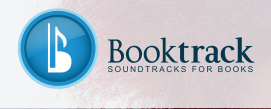 I have always admired people who can write, hold down a job, care for children, do marketing and wield a vacuum cleaner while apparently staying sane and cheerful. Sadly, I’m not one of them. I may be female, but I’m no multi-tasker. I’m more like a serial monogamist who can only concentrate on one, maybe two things at a time.
I have always admired people who can write, hold down a job, care for children, do marketing and wield a vacuum cleaner while apparently staying sane and cheerful. Sadly, I’m not one of them. I may be female, but I’m no multi-tasker. I’m more like a serial monogamist who can only concentrate on one, maybe two things at a time.
For me, family has always been THE top priority, so twenty-odd years ago I’d do technical writing during my daughter’s naps, and when everyone else was asleep.
Juggling family and writing worked back then because I was writing about real things that could be approached in neat, logical chunks, all left-brain stuff. However when I began writing fiction, I discovered that the process of creating characters and worlds is very different. Creative writing is a right-brain activity, and I’m naturally a left-brain type of person. Continue reading “Walking the Tightrope Between Work and Writing”


 We humans seem to thrive on dichotomies. Descartes kick-started the mind/body dichotomy with his famous thought experiment in which he concluded ‘I think, therefore I am’.
We humans seem to thrive on dichotomies. Descartes kick-started the mind/body dichotomy with his famous thought experiment in which he concluded ‘I think, therefore I am’. Milestones are tricky beasts. Sometimes they nudge your life in a different direction through stealth, and you are not even aware of them until months, or even years, later. Others announce their presence with a trumpet voluntary and fireworks.
Milestones are tricky beasts. Sometimes they nudge your life in a different direction through stealth, and you are not even aware of them until months, or even years, later. Others announce their presence with a trumpet voluntary and fireworks.